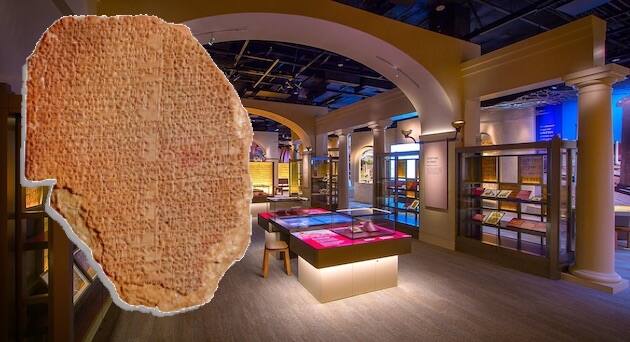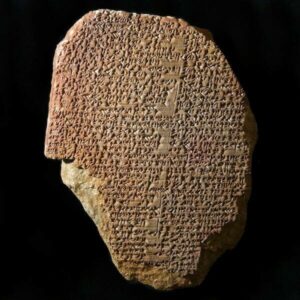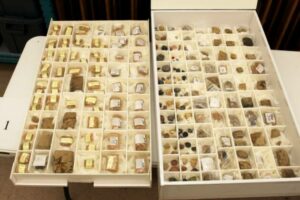Museum of the Bible works to return artifacts to rightful owners

Over 11,500 artifacts the Museum of the Bible had purchased are being returned to Iraq and Egypt.
Steve Green, president of Hobby Lobby and chairman of the board for the Museum said in a statement that control of the huge facility that housed the artifacts had voluntarily been given over to the U.S. government as part of an agreement on conservatorship. The warehouse contained 5,000 Egyptian papyrus fragments dating back to antiquity and purchased without the museum having known exactly where they had originated. The Government in turn facilitated the return of the artifacts back to Egyptian officials.

That brings the total amount of items returned to their country of origin by the Washington D.C.-based museum, to over 11,500.
Green stated that the museum began on Jan. 27, the shipment of 8,100 clay objects to Iraq.
Last June a third-party, which is independent of the museum, had taken over the care of the disputed items.
The Museum has become one of the most popular for Christians visiting the nation’s capital but also draws people from the Jewish and Muslim faiths as reported in Metro Voice. The Green family has been instrumental in collecting a wide variety of artifacts but, like hundreds of museums around the world –including some of the most well-known, has come under scrutiny after dealers who sold items were revealed to be trading in illegally obtained artifacts.
The collection of the Green family artifacts started in 2009 and they set up traveling exhibits across the nation to build enthusiasm and excitement for the museum. In most locations where it visited, such as Springfield, Mo., there was a waiting line to get in. Metro Voice had a chance to tour the D.C. museum in the Spring of 2017. It opened officially in November of that year to much fanfare with national news coverage even outside of the Christian community. Its 430,000-square-foot facility was purposely located near a Washington Metro station to make it easier for families and others visiting the city to access it.
 Green began collecting biblical manuscripts and artifacts in 2009, setting up traveling museums in various cities across the country to showcase the items and educate visitors. In November 2017, his team celebrated the public grand opening aiming to “be among the most technologically advanced and engaging museums in the world.”
Green began collecting biblical manuscripts and artifacts in 2009, setting up traveling museums in various cities across the country to showcase the items and educate visitors. In November 2017, his team celebrated the public grand opening aiming to “be among the most technologically advanced and engaging museums in the world.”
Over the last two years, the Green family has worked closely with federal authorities and curators to ensure, not only the authenticity of items but that the rightful owners see wrongfully sold relics returned.
In 2018, the museum announced that consultants had determined that 5 of 16 fragments promoted as a part of the Dead Sea Scrolls were in fact forgeries and removed them from display. In early 2020 numerous other items were determined to be forgeries sold to the Greens as authentic items. Authorities also took the “Gilgamesh Dream Tablet,” which is a part of the “Epic of Gilgamesh” and was on loan to the museum. It had been taken illegally from Iraq before being sold at Christie’s Auction House in London in for $1.6 million in 2014. National Geographic reported the auction house lied about how the artifact had entered the market, claiming it had been on the market in the United States for decades before selling it to the Greens.
The U.S. government assisted with shipping and logistics details on return of items to The Iraq Museum in Baghdad and The Coptic Museum in Cairo.
In March 2020, Green admitted that, at the time he and his family began collecting the Biblical-era artifacts that would ultimately form the basis of the Museum, he had not understood the importance of determining the specific origins and possible ownership of the items or that there items without proper paper trails could have been stolen by unscrupulous dealers.
“It is well known that I trusted the wrong people to guide me, and unwittingly dealt with unscrupulous dealers in those early years,” Green said. “One area where I fell short was not appreciating the importance of the provenance of the items I purchased.”
Since then, he said Museum of the Bible curators have “quietly and painstakingly” researched the collection and that “several thousand” items that likely originated from Iraq and Egypt lacked reliable historical information and were being returned to their likely countries of origin.
Green said that going forward, the Museum of the Bible will “continue to look for ways to partner with the Iraq and Coptic museums and to provide assistance with preserving and celebrating the rich cultural histories of those countries and many others.”
–Metro Voice and wire services








